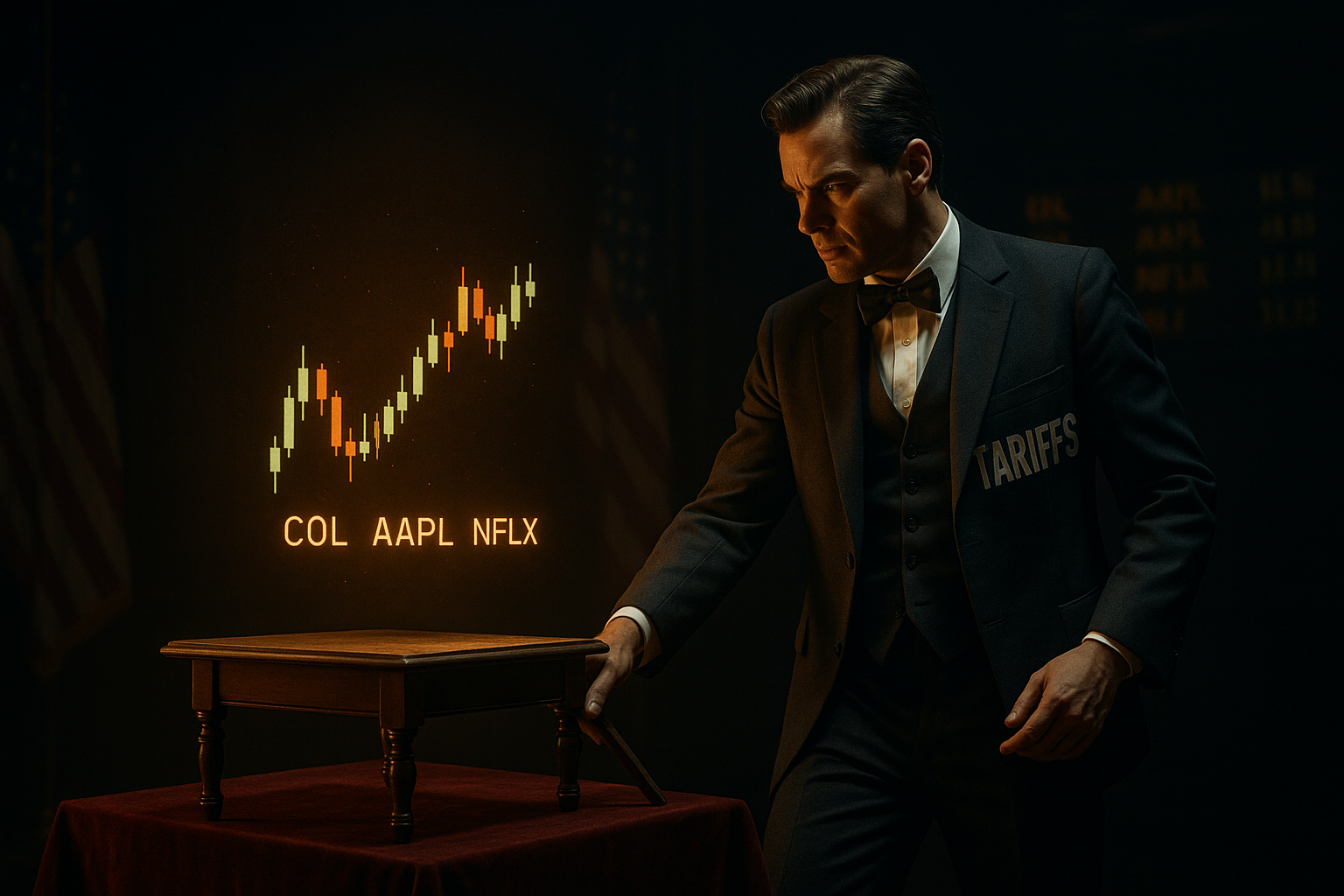The market isn't rational. Never has been. It's more like a psychological battlefield where big money players are constantly hunting for your emotional weak spots—and your wallet.
I've spent the last several days talking with traders who can't stop whispering about what's happening in the energy sector's derivatives market. It's not exactly dinner table conversation, but maybe it should be.
"The real action isn't in the obvious places," explained one veteran commodities trader who asked not to be named (they always do). "While everyone's obsessing over the next Fed announcement, there's a shadow game happening with energy swaps that would make your head spin."
This pattern feels eerily familiar. Back in 2007, I remember interviewing bankers who dismissed concerns about mortgage-backed securities while simultaneously building massive hedge positions. History doesn't exactly repeat, but good lord, the echoes are getting louder.
Last Thursday, I had drinks with a former trading desk director who now runs his family office (managing roughly $8 billion in assets). Between sips of overpriced bourbon, he confirmed what several sources had been telling me: smart money is quietly—almost stealthily—positioning for energy price disruptions by late summer.
But here's the thing. They're not making obvious plays.
Instead, they're constructing labyrinthine derivative structures that fly under regulatory radar. These positions don't appear in conventional reporting channels, which is precisely the point.
Look, market liquidity isn't just some abstract concept. When bid-ask spreads start widening in certain fixed income instruments, that's like watching animals run before you feel the earthquake. Something's coming.
Meanwhile, your typical retail investor is still being spoon-fed the "soft landing" fairy tale on financial news networks. (Having covered market cycles for nearly two decades, I've watched this movie before. The ending rarely changes.)
The institutional game hasn't fundamentally changed since I started covering finance. The house wins because—surprise!—they write the rulebook. They see the order flow. They know where the bodies are buried.
Want real market intelligence? Stop watching the financial entertainment networks and start tracking capital movements. Unusual options activity isn't random noise—it's informed money making calculated bets with information advantages you simply don't have.
My two cents? Build your cash position. Now. The best opportunities I've witnessed throughout my career weren't from brilliant insights—they came from having dry powder when everyone else was desperately liquidating.
As one hedge fund manager told me years ago (and I've never forgotten): "Bulls make money, bears make money, sheep get slaughtered." And Wall Street, for all its gleaming towers and fancy algorithms, is still fundamentally a shepherding operation.
The Institutional Investor's FOMO Delusion
I just finished reviewing the latest quarterly allocation reports from several major pension funds, and... well, it's exactly the pattern I've been warning readers about for months.
Institutional FOMO—fear of missing out—is driving serious capital into increasingly overvalued assets. And it's happening just as whisper networks suggest the smart money has begun its calculated retreat.
This isn't exactly new. During my fifteen years covering institutional investment strategies, I've watched this psychological trap spring shut repeatedly. The biggest irony? The largest, most sophisticated players aren't immune to the same emotional pitfalls that ensnare everyday investors—they just dress it up in better PowerPoint presentations.
When you see university endowments increasing their private equity allocations at current valuations, what you're really witnessing isn't investment strategy. It's career risk management in action.
"Nobody ever got fired for investing like their peers," a university endowment CIO told me last month, requesting anonymity for obvious reasons. "But they absolutely get fired for missing out while everyone else profits—even temporarily."
This timing mismatch has destroyed careers. I've personally watched brilliant analysts get shown the door because their (ultimately correct) analysis was six months too early. Being right isn't enough in this business; you have to be right when it matters.
The fundamental business model of Wall Street hasn't changed since I first started covering finance—extract maximum fees while transferring risk elsewhere. The instruments have grown more complex (deliberately so), but the game remains remarkably consistent.
Yesterday, I spoke with three different fund managers who all expressed similar concerns off the record. One, managing over $12 billion in assets, put it bluntly: "We're in the late innings, playing with house money, and everybody knows it. But nobody wants to be the first to leave the party."
The old market adage still applies (a grizzled trader hammered this into me early in my reporting career): The market can remain irrational longer than you can remain solvent.
Don't fight momentum. But for heaven's sake, don't marry it either.




